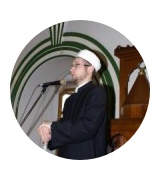Peace, Islam and Terrorism
06/06/2011«… as we do not wish to be restrained and limited in our faith, so we must not impose those on other faiths as well”
Vladimir Soloviev
The results of the All-Russian representative survey conducted by the service SREDA (field work: Public Opinion Foundation “PENTA”, sample 1500 people)
Most Russians are convinced that people of different faiths in Russia must live peacefully, side by side. This was said by 93% of all respondents. But 40% of Russian citizens believe that Islam and terrorism are linked. Women expressed this view more often than men, and educated respondents often did not agree with this statement.
77% of Russians said that cooperation of the state and the Russian Orthodox Church is essential to raise religious and ethnic tolerance. This was more often expressed by Muslims and Orthodox Christians belonging to the Russian Orthodox Church.
In the poll the respondents were asked to answer the following questions:
– In your opinion is the following true or false? “I believe that terrorism and Islam are linked.”
– In your opinion is the following true or false? “I believe that people of different faiths in Russia must live peacefully side by side.”
– Please rate the need for cooperation between the state and the Russian Orthodox Church in terms of increasing religious and ethnic tolerance.
43% of Russians do not see anything in common between terrorism and Islam. In the Muslim demographic, this figure rises to 90%. Also, least likely to see such a link are pupils and students, educated citizens, and respondents who work in the field of science or education.
Men, more often than women, say that Islam and terrorism are not linked. Women, by contrast, often speak about the connection between these concepts.
The highest percentage of respondents who didn’t find anything in common between terrorism and Islam live in Volga Federal District (55%).
40% of Russian citizens see a link between terrorism and Islam. Most often this opinion was expressed in North-Western (55%) and Siberian federal districts (52%), as well as by low-income citizens who can not always find money for clothes.
Muscovites are somewhat more likely to disagree with the view that there is a link between terrorism and Islam. But residents of other cities with over 1 million inhabitants, on the contrary, more often claimed that such a link exists.
Most Russians are convinced that people of different faiths in Russia must live peacefully, side by side. This was reported by 93% of all respondents. And such answer was for the most part given regardless of age, education and economic status. A bit more often this view was expressed by residents of North-West (99%) and Volga (97%) federal districts, the respondents living in cities with populations over 1 million people (97% ), young people, entrepreneurs, and Orthodox Christians.
Still, there were some citizens who did not believe that representatives of different faiths should live in peace with each other. Such a view was expressed by 4% of all respondents.
3% of Russians were undecided. More often difficulty with giving a response was experienced by respondents from the Siberian and Far Eastern federal districts.
When asked about the need for cooperation between the state and the Russian Orthodox Church to raise religious and ethnic tolerance, 77% of Russians answered that such cooperation is necessary (or mostly necessary). More often the need for joint efforts between the Church and the state was articulated by Muslims, Orthodox Christians belonging to the Russian Orthodox Church, residents of cities with populations over one million people, including Moscow, and respondents with higher education (or incomplete higher education).
Most Russians believing that the state and the Church should work together to improve the situation of religious tolerance and international understanding live in the North West, South and North Caucasus federal districts.
8% of all respondents thought that cooperation of the Church and the state on religious and ethnic issues is unnecessary. Somewhat more likely to express this view were young people from 18 to 24 years old, non-believers and non-superstitious respondents.






